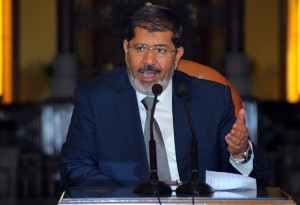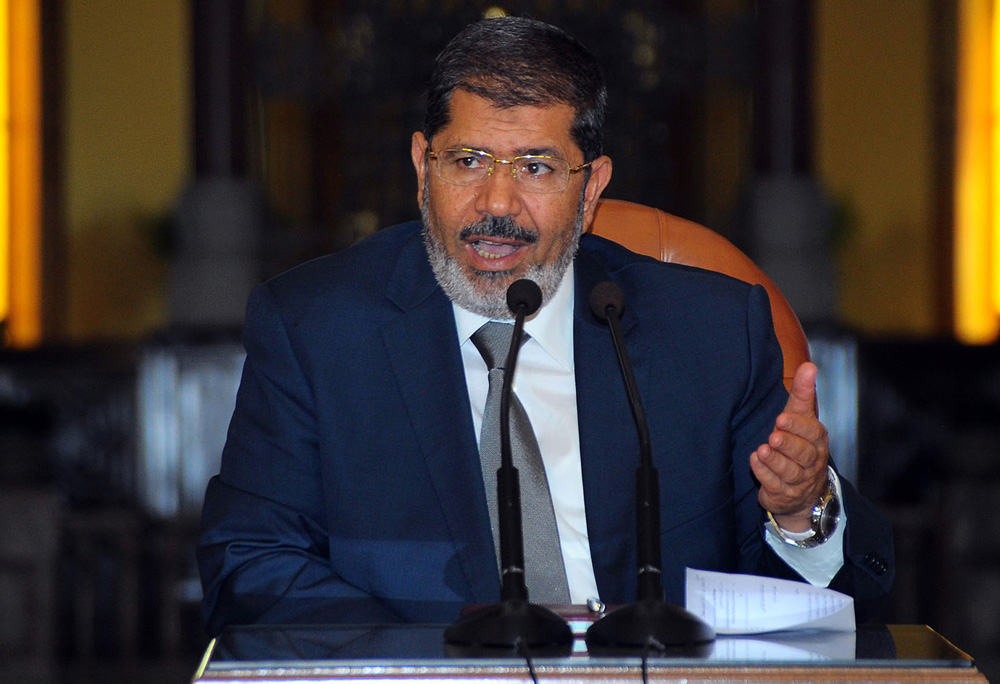
AFP PHOTO / EGYPTIAN PRESIDENCY / STR
Legislative powers will not be transferred to the Shura Council, according to an Al-Masry Al-Youm interview with the office of the presidency on Sunday.
This leaves the powers of both the executive and the legislature in the hands of President Mohammed Morsy.
In the Al-Masry Al-Youm interview, presidential spokesman Yasser Ali points to the 1923 constitution, which he argues permits the president to hold onto legislative powers in the absence of a People’s Assembly.
There has been no shortage of detractors in the wake of Morsy’s recent decision. Former MP Mohamed Abu Hamed, a former member of the Free Egyptians Party and founder of the new Life of the Egyptians Party, blasted Morsy’s original declaration saying, “The President-elect has issued a constitutional declaration giving himself additional powers away from supervision of the people.”
Political thinker Mohamed El Baradei stated his position on Twitter, writing, “With military stripped of legislative authority & in absence of parliament, president holds imperial powers. Transitional mess continues.”
However, the Egyptian government’s State Information Service published a message from President Morsy on Thursday in which he promised he will only use his new legislative powers for “matters of urgent necessity.”
In a meeting with the Supreme Judicial Council, Morsy also dispelled rumors that he would touch the judiciary, saying that it was not within his power to integrate any judicial functions into the executive office.
Morsy’s previous governing experience consisted of five years as part of a neutered parliament under then-dictator Hosni Mubarak. During those five years, the Muslim Brotherhood was not even allowed to run for office. Now the president of the Muslim Brotherhood’s political party has risen to the top of the new and evolving political scene in Egypt.




